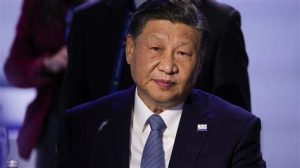The House Select Committee on the Strategic Competition Between the U.S. and the Chinese Communist Party (CCP) has unveiled a detailed report, released on Tuesday, presenting a comprehensive strategy aimed at resetting the economic and technological rivalry between the two largest global economies. The report, authored by the bipartisan committee, outlines nearly 150 policy recommendations with the overarching goal of fortifying the United States’ position in this geopolitical competition.

At the core of the committee’s recommendations is a call to recalibrate the economic relationship between the U.S. and the CCP. The report underlines China’s failure to uphold commitments under the World Trade Organization (WTO), highlighting CCP’s backing of state-owned enterprises, subsidies to domestic industries, and restrictions on market access. Furthermore, it points out China’s attempts to disadvantage U.S. companies by providing low-cost or free capital and regulatory support to specific industries.
The committee advocates for a robust response from the U.S., emphasizing the need to counteract China’s economic and trade strategies. This includes the imposition of tariffs to address unfair trade practices and a reduction in U.S. dependence on critical sector imports from China. The report also recommends pursuing disputes against China through the WTO, enforcing country-of-origin labeling, and preventing China from leveraging U.S. free trade agreements to bypass trade barriers. Additionally, the committee urges the U.S. to engage in bilateral trade agreements with countries like Taiwan, Japan, and the United Kingdom, along with sector-specific agreements focusing on areas like semiconductors, electric vehicle batteries, and pharmaceutical ingredients.
In recognizing the vulnerabilities of U.S. companies and investors to sudden disruptions in the Chinese market, particularly in scenarios like conflict over Taiwan, the committee suggests enhanced transparency. Regular reports from financial regulators, stress tests by the Federal Reserve on U.S. banks, and evaluations of how U.S. financial markets could be affected by sanctions against China are recommended to keep Congress informed.
The report also draws attention to the unwitting support of American investors for entities linked to the PRC military and technology firms implicated in human rights abuses. To address this, the committee recommends legislation prohibiting investment in PRC companies listed on U.S. sanctions and red-flag lists.
Furthermore, the report acknowledges the limitations of export controls in keeping pace with technological advancements. To address this, the committee proposes restrictions on the flow of critical and emerging technologies, such as advanced semiconductors, to prevent their misuse by countries like China in bolstering military capabilities and advancing fields like artificial intelligence.
In summary, the House Select Committee’s report offers a multifaceted approach, encompassing trade policy, financial safeguards, and technology controls, in an effort to position the United States strategically and competitively against the economic and technological prowess of the Chinese Communist Party.

